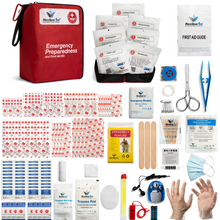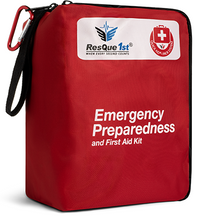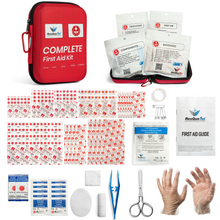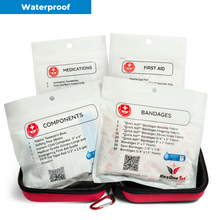
Summer is here. With temperatures on the rise we need to know how to stay safe in the heat and how to help our friends and family if they should suffer from a heat illness.
Our bodies naturally produce heat. And they have a built-in safety system to cool off: sweat. As sweat evaporates off our skins, our bodies’ temperatures drop. But when the external temperatures and humidity rise, our bodies can’t keep up. Sweating alone is not enough and we may overheat and develop heat illness.
Who Is At Risk?
- Older adults
- Young children
- People who are overweight
- People who overexert themselves during exercise, play or work
- People who are physically ill, especially those with high blood pressure or heart disease
- People who take certain medications, such as those for depression, insomnia or poor circulation
Types of Heat Illness
There are four main types of heat illness.
- Heat rash - a skin irritation from excessive sweating. This is most common in young children.
- Heat cramps - muscle pains or spasms in the abdomen, arms or legs. These usually occur during heavy exercise because the body loses salts and fluids when it sweats.
- Heat exhaustion - this illness may come on after several days of exposure to high temperatures and dehydration. Symptoms include heavy sweating, rapid breathing, a fast, weak pulse, weakness, fainting, muscle cramps, nausea and/or vomiting, irritability, headache, cool clammy skin and increased body temperature (under 104°).
- Heat stroke - this is a life-threatening illness where body temperatures may rise above 106°. This could cause brain damage or even death if it isn’t treated. Symptoms include no sweating; flushed, hot, dry skin; a rapid, strong pulse and breathing, dizziness; weakness; nausea; confusion; severe headache; loss of consciousness; seizure.
How To Help Someone With A Heat Illness
Here are some tips on how what you can do to help someone who has a heat illness.
- Heat rash - This condition will usually go away on its own in a few days. Encourage the person not to scratch the rash. Keep the affected area dry. And try to keep the person in a cooler, less humid place.
- Heat cramps - Have the person stop the exercise or activity and rest in a cool place Encourage him to drink fluids, especially ones with salt and sugar, such as sports drinks. Gently stretch and massage the muscles.
- Heat exhaustion - Move the person to a cooler place indoors or a shady area. Remove any excess clothing. Encourage the person to drink cool fluids containing salt and sugar, such as sports drinks. Put a cool, wet cloth or cool water on the skin. Call the doctor for advice. If left untreated, it could turn into heat stroke.
- Heat stroke - Call for emergency medical help immediately. While waiting for the help, get the person indoors or into the shade. Remove as much clothing as possible and sponge off with cool water.
How To Prevent Heat Illness
Do the following to help prevent heat illness.
- Wear lightweight, light-colored, loose-fitting clothing
- As much as possible, stay in cool, air-conditioned places when the temperatures soar
- Schedule your outdoor activities to take place when it is cooler - in the mornings and the evenings
- Don’t overexert yourself - dial back on intense activities and rest in cool, shady places often
- Wear sunscreen and wear a hat and sunglasses
- Eat light meals more frequently throughout the day
- Drink fluids frequently throughout the day - not just when you are thirsty - but stay away from very sugary or alcoholic drinks because these actually make you lose more body fluid.
- Replace salt and minerals lost from sweating. This can be done by drinking sports drinks, taking cell salts or mixing electrolyte powder into water.
Following these guidelines will help you keep yourself and your family and friends safe this summer. Keep this guide posted on the refrigerator for reference. And keep an emergency kit with a thermometer, instant cold compresses and electrolyte powder handy in your home, at the office and in your car. That way you will be prepared to handle any heat illness if it arises.










